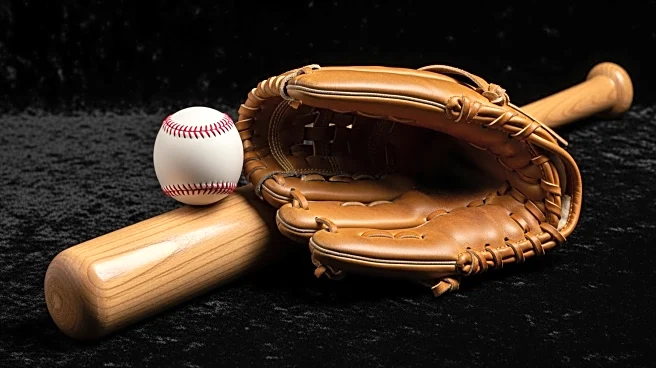What's Happening?
The Baseball Hall of Fame's 'Contemporary Baseball Era' committee has announced a ballot featuring eight former players, including Barry Bonds and Roger Clemens, for induction in 2026. This move revives
their eligibility through a process outside the traditional writers' vote. The committee's new rules state that candidates receiving fewer than five votes from the 16-member panel will be ineligible for the next three-year cycle. The ballot targets players whose primary contributions to the game occurred since 1980, focusing on those whose careers matured outside the traditional historical window and whose eligibility through the writer ballot has lapsed. The inclusion of players like Don Mattingly, Jeff Kent, and Gary Sheffield alongside Bonds and Clemens raises debates about character, era-adjustment, and the weighting of peak versus longevity.
Why It's Important?
This development is significant as it addresses the ongoing controversy surrounding performance-enhancing drugs and their impact on Hall of Fame candidacies. The inclusion of players linked to doping, such as Bonds and Clemens, highlights the Hall's struggle with its legacy and the moral judgments of voter panels. The decision to revive their eligibility reflects a broader conversation about the evolving values of the sport and the balance between recognizing historic excellence and addressing ethical concerns. The outcome of this ballot could influence future Hall of Fame inductions and the criteria used to evaluate candidates, potentially affecting the reputations and legacies of the players involved.
What's Next?
The committee will convene during the upcoming Winter Meetings, where the results will be live-released. Any inductees will join the Class of 2026. This process may prompt reactions from various stakeholders, including sports analysts, fans, and former players, as they weigh in on the implications of the committee's decisions. The Hall of Fame's approach to handling candidates linked to performance-enhancing drugs could set a precedent for future ballots and influence the broader discourse on ethics in sports.
Beyond the Headlines
The decision to include players with controversial histories on the ballot may spark discussions about the ethical dimensions of sports and the role of character in evaluating athletic achievements. It could also lead to long-term shifts in how the Hall of Fame addresses issues of doping and integrity, potentially influencing public perceptions of the sport and its history.








